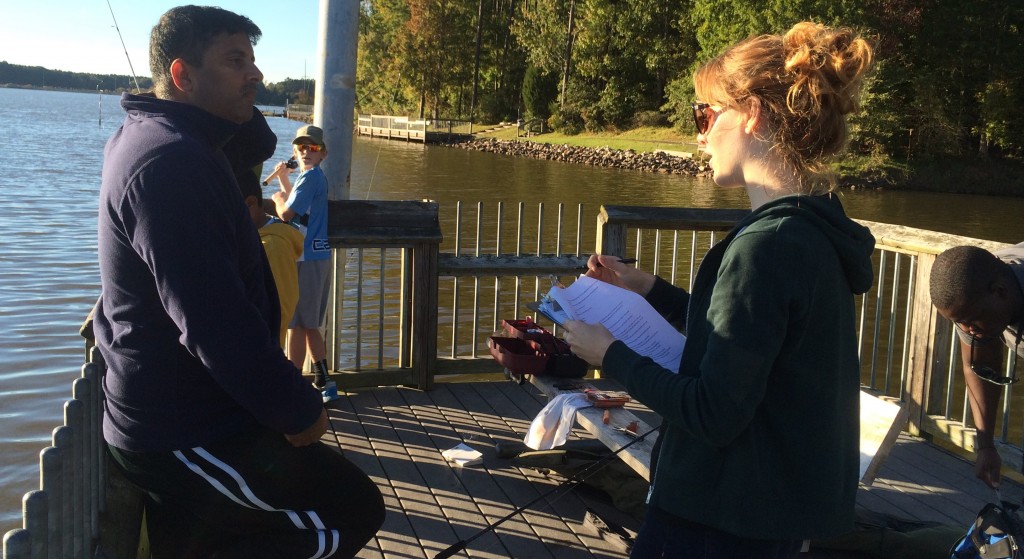Partnering to educate anglers about complex fish consumption advisories

RTC community engagement coordinator Kat Bawden surveys an angler about the PCB-related fish consumption advisory at Lake Crabtree County Park.
SRP Research Translation Core (RTC) staff are engaging with community partners to educate recreational anglers and their families about a fish consumption advisory related to polychlorinated biphenyl (PCB) contamination in Lake Crabtree near Morrisville, NC.
Dangerous levels of PCBs have been found in fish in Lake Crabtree County Park and its tributaries, popular fishing sites located near the Ward Transformer Superfund site. Our community partners, the Neuse Riverkeeper Foundation and Lake Crabtree County Park, are concerned that many people continue to take home their catch, despite the risk of exposure to this toxic chemical.
Several stakeholders, including staff with the NC Department of Health and Human Services, have been involved in the process of developing prototype educational material to help communicate risks associated with eating contaminated fish as well as find safer places to fish. RTC staff are currently piloting the material with English- and Spanish-speaking anglers at four different fishing locations around the lake with assistance from SRP trainees Samantha Tulenko (Project 3) and Lanisha Brown (Project 4).
“This assessment is an integral step in our process of developing educational materials around the fish consumption advisory that are responsive to target audience needs and perceptions,” explained Kathleen Gray, RTC leader.
Goals of the project include better understanding anglers’ perceptions of PCB risk from consuming fish from Lake Crabtree, gaining feedback on the educational material, and evaluating the material’s impact on anglers’ knowledge and intent to change behavior related to consuming contaminated fish. Staff are also interested in finding out where anglers get trusted information on health and fishing, and gathering ideas on how best to disseminate this health information.
“We felt it was crucial to involve the target audience in the process of both developing educational material and generating ideas for future outreach and education projects. Recreational anglers know fishing and their community’s resources better than we do,” explained RTC community engagement coordinator Kat Bawden. “The anglers we surveyed are eager to learn more and be involved in future iterations of this work. It’s been exciting to hear their ideas for sharing the message through various community-based platforms.”

